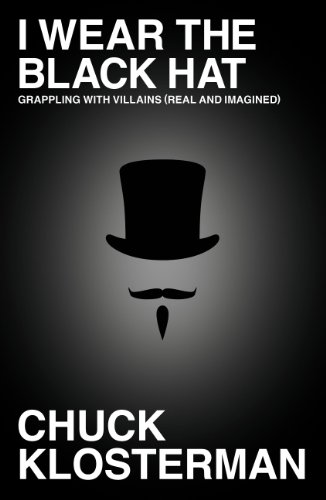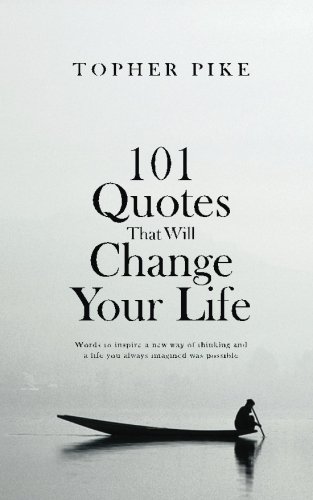
Chuck Klosterman has walked into the darkness. As a boy, he related to the cultural figures who represented goodness—but as an adult, he found himself unconsciously aligning with their enemies. This was not because he necessarily liked what they were doing; it was because they were doing it on purpose (and they were doing it better). They wanted to be evil. And what, exactly, was that supposed to mean? When we classify someone as a bad person, what are we really saying (and why are we so obsessed with saying it)? How does the culture of deliberate malevolence operate?
In I Wear the Black Hat, Klosterman questions the modern understanding of villainy. What was so Machiavellian about Machiavelli? Why don’t we see Bernhard Goetz the same way we see Batman? Who is more worthy of our vitriol—Bill Clinton or Don Henley? What was O. J. Simpson’s second-worst decision? And why is Klosterman still haunted by some kid he knew for one week in 1985?
Masterfully blending cultural analysis with self-interrogation and imaginative hypotheticals, I Wear the Black Hat delivers perceptive observations on the complexity of the antihero (seemingly the only kind of hero America still creates). I Wear the Black Hat is a rare example of serious criticism that’s instantly accessible and really, really funny. Klosterman continues to be the only writer doing whatever it is he’s doing.An Amazon Best Book of the Month, July 2013: Name one writer who could drop Eazy-E, Hitler, and Linda Tripp into the same conversation and spark neither rage nor derision. I count Chuck Klosterman and maybe no one else. But that’s what his new collection does: I Wear the Black Hat examines “villains” of all stripes and scale, as well as our varied (and often counterintuitive) reactions to them. For example: If Batman were real, would he be any less reviled than Bernhard Goetz, the 1980s NYC subway vigilante? (Probably not–he’d be a scary freak.) Why would D.B. Cooper, a hijacker who parachuted into the night sky over Washington state with 200 thousand dollars in stolen money, become a legend and a folk hero? (Because he seemed smooth and he wore a suit.) Is Don Henley evil? (That’s a personal decision.) The subject is serious–at first blush there’s nothing funny about murderers, tyrants, and Al Davis–but Klosterman’s pop culture sensibilities and skewed vistas offer interesting angles into what makes some bad guys bad and other bad guys good, while his deceivingly lightweight style keeps things brisk and entertaining. Instead of getting mad at what might seem glib or impertinent, you admire the audacity of the observation and wish that you’d thought of this yourself (or at least that you had written it down). The question of who could do this might be irrelevant; how many would even try? –Jon Foro
Guest Review of I Wear the Black Hat
By Rob Sheffield

Nobody investigates American culture with the ferocity of Chuck Klosterman. It’s impossible to imagine any writer who even could have invented Klosterman as a fictional character, because no other writer can come close to matching his ear for the way Americans love to argue. I Wear the Black Hat is his study of villains, ripping into moral questions with the same fervor he brings to any other topic. Who else loves an argument this passionately? And what could be more American than loving an argument? Reading I Wear The Black Hat is like wandering into a saloon, taking the barstool next to Ralph Waldo Emerson, and getting sucked into a marathon philosophical debate over Kareem Abdul-Jabbar’s cameo in Airplane!
Black Hat is his most wide-ranging, provocative, unhinged and hilariously contentious book yet. In “The Ethicist,” the column he writes for the New York Times, Klosterman addresses his readers’ everyday moral dilemmas, but here he branches into broader questions of good and evil. What is a villain? What makes a villain different from a bad guy, a crook, an antihero? Why does the Dude hate the Eagles? Why do kids relate to Luke Skywalker while their parents prefer Darth Vader?
It’s a rogue’s gallery of villains, ingeniously paced to keep you guessing who’s coming up next. Some of these villains are historical figures, like Machiavelli or Stalin. Others are modern legends, like the 1970s skyjacker D.B. Cooper. Some are totally fictional, like the mustache-twirling cartoon Snidely Whiplash. And one is Hitler, just because people kept disagreeing about whether he should include a Hitler chapter. He digs into the tangled ethical legacies of Muhammad Ali and Joe Frazier, Jimmy Page and Aleister Crowley, Batman and Bernhard Goetz, N.W.A. and the Oakland Raiders. He also notes how President Obama has called Omar his favorite character on The Wire, “thus making Obama the first sitting president to express admiration for a fictional homosexual who killed dozens of people with a shotgun.”
As always, Klosterman mixes cerebral quibbles with his own crackpot junk-culture erudition, like some kind of demon spawn sired by Schopenhauer and C. C. DeVille. He always finds a way to cast some new light on artifacts that are hidden in plain sight. For instance, most people have heard of The Starr Report, and have a vague sense of its historical impact. But who has actually read it lately? Who remembers details like the way Monica Lewinsky gave Bill Clinton a souvenir mug from Santa Monica? Or O.J. Simpson’s 2007 book If I Did It, his hypothetical memoir of how he would have murdered his victims? “The existence of this book is deeply, vastly, hysterically underrated,” Klosterman notes. “I want to write something along the lines of ‘If I Did It is as bizarre as —,’ but no cultural minutia fits in that space. Roman Polanski would have to make a biopic about Charles Manson’s music career.”
All over Black Hat, Klosterman brings a little sympathy for the devil, which is essential for a book this ambitious. And he holds it all together with his voracious intellectual curiosity, the emotional intensity of his prose, the compassion of his bad Catholic conscience. As he ruefully admits, in his discussion of Chevy Chase, “I see all of Chevy’s worst qualities in myself. But none of his good ones.”
If he ever came off as moralistic, or a talk-radio blowhard, it would sink the whole project. Yet Klosterman always seems to approach these questions out of genuine curiosity–the man would rather start an argument than settle one, much less win one. He savors the debate for its own sake. That’s what makes his voice so humane, so unmistakable. It’s also what ultimately makes Black Hat his most compelling work. Reading any random page of Black Hat–as with anything Klosterman writes, except more so–you want to argue back at every line, right down to the commas.



